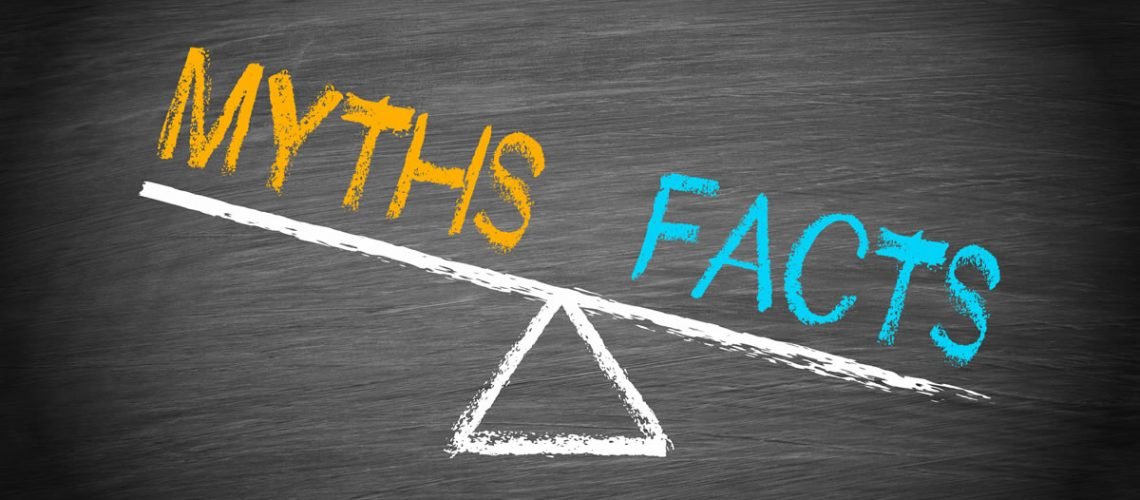Top 3 Tax Myths
Let’s face it, the tax code is enormous and confusing. Even tax professionals are constantly learning something new. As taxpaying citizens, we don’t want to pay more tax than we should. So, sometimes we’ll hear someone (usually not a tax professional) give us some advice that sounds good and we run with it. Here are the top 3 Tax Myths I’ve heard recently:
1) Even if I have the cash, I shouldn’t pay off my mortgage so I can maximize my tax return.
Truth: Math doesn’t lie. If you can pay off your house you should. For example, if you pay $10k in mortgage interest and your tax bracket is 24%, you’d save $2,400 in taxes. That’s still $7,600 that’s gone out of your pocket. There’ve also been some significant changes to the standard/itemized deductions in 2018. One, the standard deduction is now $24k for married couples filing jointly. This means if your itemized deductions (home mortgage interest, state/property taxes, charitable contributions, etc.) don’t exceed $24k, you will just be taking the standard deduction. The other big change is that state and local taxes are capped at $10k for purposes of itemization. So, there’s a large number of people (CA and NY residents especially) that used to itemize who will now claim the standard deduction. Translation: if you’re one of these people, you get ZERO tax benefit for having mortgage interest. In our example, your $10k in mortgage interest would translate into zero money saved.
The argument I’ve heard from people who like to borrow and invest is that they can take the cash they would have used to pay off their mortgage and invest it at a higher rate of return. Let’s look at that… Let’s take a somewhat low mortgage rate of 4%. It is true that you might be able to get a higher rate of return than the 4% you’d save. But, that 4% is guaranteed. Stocks are volatile, and you may not get the return you’re looking for. And if you had no house payment, wouldn’t that free you up to invest the equivalent mortgage amount however you’d like, every single month?! Having a reduced monthly budget is a key to building wealth. I love what Dave Ramsey says on the radio about this topic; something like, “If your house was paid for, would you borrow on it to invest in the stock market?” For most people, the answer is no. So if you have the cash, forget about the tax savings (because there probably isn’t any) and don’t count on the market beating a guaranteed 4% return that essentially makes you debt free.
2) I’m employed by a company and I want some stuff for work. I should buy it to save money on taxes at year end.
Truth: The new tax law eliminates unreimbursed employee expenses as a deduction. This includes mileage, supplies, and home office deductions etc. for employees (different if self-employed). If you have to have it, buy it. Just don’t expect a tax break. Sorry! This is going to be a tough one for some of my clients who are employees of real estate companies, mortgage brokers, and even financial advisors. They travel to client locations often and most have a home office. It just isn’t allowed in the new tax law. So, if this applies to you, consider approaching your employer to get compensated for work related expenses because you no longer get to write this off.
This also applies to a lot of my public safety brothers and sisters. When I was a patrol officer, I would buy boots and supplies throughout the year that were not covered by my employer. I’d get a portion of that as a deduction. The new tax law eliminates these deductions.
3) The new “postcard” return is easy.
Truth: If you have one source of income, that might be true. If you have anything more, you’ll likely have to fill out several schedules in order to fill out the postcard. The new 1040 forms are very basic, but the information that used to be included on the old forms is just moved to Schedule 1, Schedule 2, etc. I like the idea of a simplified return, but in reality, it doesn’t appear to have changed anything. Those that needed professionals to help with tax filings will likely still need that assistance.

